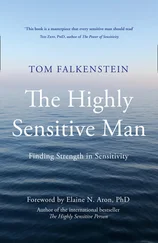1. Awareness of Subtleties
What a wonderful quality in some situations: your daughter notices your every loving glance and returns it, can tell you when her little brother is hungry before you ever thought about a feeding, and functions like a living smoke alarm, letting everyone know if there is a bit of smoke anywhere, even from the next-door neighbor’s chimney. In other situations, what a pain. In particular, HSCs notice when the smallest thing is not to their liking. “There’s some skin left on this apple—you know I hate skin.” “This room stinks” (you cannot smell a thing unusual). “You moved my computer, didn’t you?” “Yes, that’s the flavor I like, but the wrong brand—this kind tastes chalky.”
Not all HSCs notice subtleties. There are a few who seem fairly oblivious, being more preoccupied with their inner world. Or they may be bothered more by intensity—loud noise, bright lights, or spicy foods—and less by subtle stuff. Or they may only notice subtleties in one area—just food or clothing or social nuances. But with an HSC, it’s bound to come up somewhere.
Chapter 7will focus on coping with the problems that arise with this quality of HSCs. In the meantime, here are some general pointers:
Believe your child . When your child says it hurts, rubs, or stings, it does, even if the same thing doesn’t bother you.
With little HSCs, keep them fed and rested —they will be less irritable and better able to wait for you to relieve a discomfort.
When HSCs are old enough to understand you, first acknowledge your child’s discomfort, then let him know when and how it will end or that you simply cannot do anything about it if that is truly the case. If you have first conveyed sincere respect for your child’s response and sympathy for his desperate need, and your own valid reason to delay or do nothing—you have to finish the shopping, get to the car where there are dry clothes, use up this brand because you cannot afford to waste it—he will grow in the ability to understand that and wait.
Put limits on what you can be expected to do . Some children find their shoelaces uncomfortable, but even if you tie them fourteen times they will still feel all wrong, possibly because your child is so focused on this sensation and frustrated. Discuss it when you are not tying shoes—that you will try five times, trying to follow her instructions. The fifth time will have to suffice because you’ve become frustrated, too, or do not have the time to continue.
Stick to your standards of politeness and good public behavior, but remember emotions are sometimes irrational and overwhelming, even for adults. If your child is losing all control over what seems like a “small matter,” solve the situation for now as best you can, or if you cannot, let your HSC cry or scream while you simply hold her (if young) or stay with her and sympathize. When things are calm, perhaps the next day, the two of you can discuss what needs to be done so that she will behave better the next time.
When possible, put your child in charge of the solution . A parent with a son who is fussy about socks has him choose the ones that will not bother him. If there are none, it is not mom or dad’s fault.
2. Being Easily Overstimulated and Overaroused
As I said in Chapter 1, a child who notices subtleties will also become overwhelmed when too much is coming at once. (The “too much” can come from outside, but also from inside, as when a child imagines something very frightening or exciting.)
The more stimulation, the more the body becomes aroused to deal with it. Every animal and human seeks just the right level of arousal—it’s as automatic as breathing. Too little and we are bored, restless. We put on the radio or call a friend. Too much and we are uncomfortable, rattled. We try to calm down, but if we can’t, we perform poorly at whatever task we are doing—hitting a ball, solving a math problem, thinking of things to say in a conversation. HSCs become overaroused more easily. That means your daughter may be perfectly able to catch a softball when the two of you play catch at home, but in a game she drops the ball as often as she catches it. She starts to hate playing, she cries during games, yet she wants to play and you want her to. You think, why so much drama around a simple game of ball? Do you make her play or let her quit?
First, understand that HSCs will have areas in which overarousal causes great difficulty. These are usually activities in which, early on, they have had a failure or imagined they would have one. The next time they try they are more aroused and anxious rather than more relaxed, so they do even worse. But performance anxiety is not always the culprit—they can be eager to perform and confident and still be overaroused by the lights and the crowd.
Can we ever see this proneness to overarousal as a good thing? Overarousal itself is never helpful, but needing so little to reach a comfortable level has its uses. HSCs are usually less easily bored, for example. And they are more caring, involved performers in situations when others might not make an effort.
Are there HSCs who do not become easily overaroused? Most have some areas in which they are so at ease that they can function smoothly even under great pressure or conditions of high stimulation. But in other areas, the overarousal usually appears. Chapter 7will help with dealing with overarousal in general, and Chapter 8will help when it leads to shyness in social situations. In the meantime, here are some general pointers:
• See that your child has an area of competence —a sport, form of art or self-expression, academic subject, magic show, comedy routine, experiences of chatting with interested adults, or leading other kids in a fantasy game. Choose something he is interested in and start slowly, seeing that at first every attempt meets with success.
With my son this worked with drama and writing. When I enrolled him in an acting class at age eight, I actually asked the teacher to praise him—he had had so many failures in sports. He came out of his first class beaming: “She says I’m a born actor!” He never missed a class after that.
With writing, I made a point of seeing that he never handed in a paper that was not typed and well done. The good grades and praise made him love it.
• See that your child is so overrehearsed and so skilled that nothing will faze her . Practice in the same circumstances and setting as she will actually be performing the skill. Go to the baseball diamond to practice. And once your child is prepared for the arithmetic test, give him some problems to do with a time limit and that you will grade afterward. Never let an HSC go into a test or performance underprepared.
• Talk about things that can go wrong and how to handle them . Talk about mistakes and how to understand them. It is the bottom of the ninth, the score is tied, and your child strikes out. Discuss ahead of time that this is bound to happen at least once in every baseball career. What can your child say to herself and to others to make it bearable? (Does that seem like planting the expectation to fail? Usually, your child will have already imagined failure; you are planting the seed of coping.)
• Explain the effect of overarousal on performance and comfort . Explain that he has the skill, but nervousness (or noise, a new setting, an audience, or other overstimulation) can sometimes interfere. Tell your child this story: I knew a woman who could break world records in her sport at small contests, but could never do it at the Olympic trials. She and I had to conclude that the Olympics did not identify the best athletes, but the best athletes under conditions of very high stimulation .
Читать дальше











